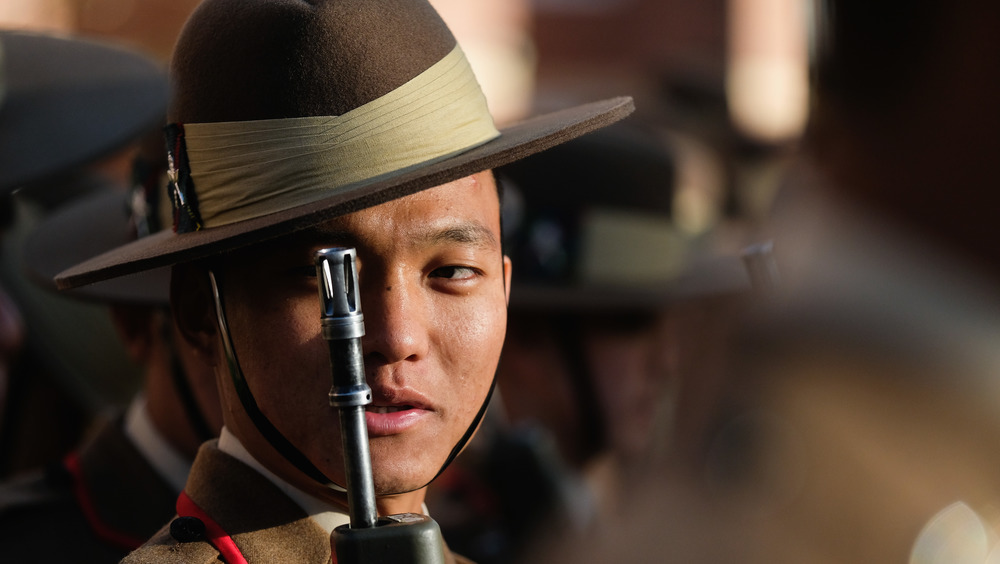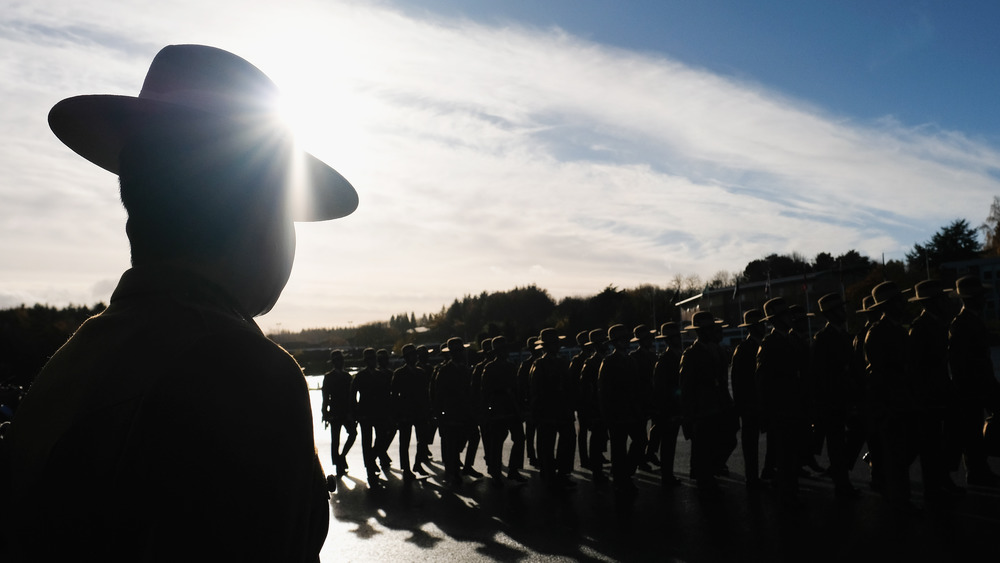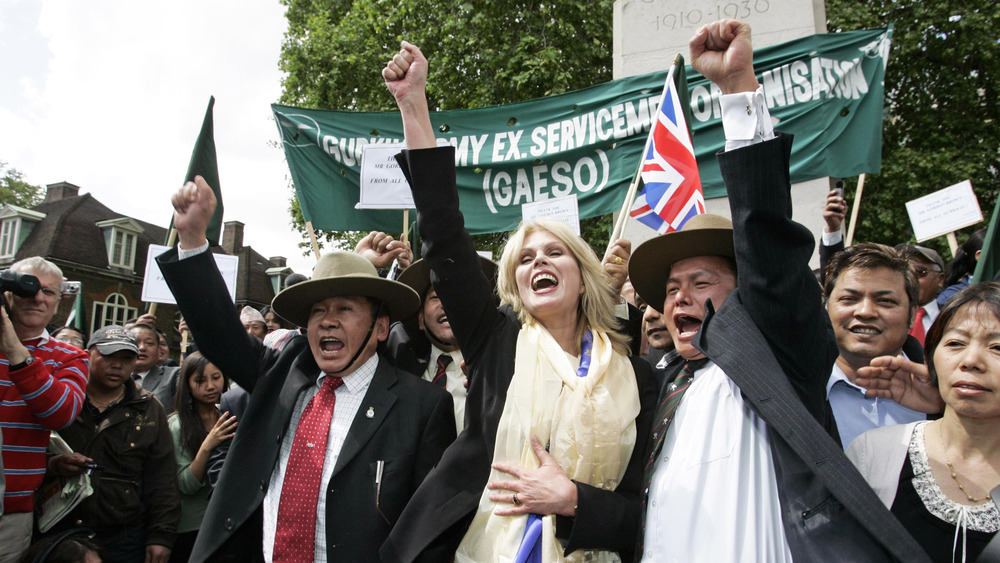Why Gurkhas Are Considered The Toughest Soldiers In The World
From the ancient Spartans to the Tuskegee Airmen, elite fighting units from ancient history to the present day never fail to capture the imagination. Stories in which bravery, discipline, and enormous skill and cunning come together to achieve the impossible in life-and-death situations are, understandably, passed down the generations, and the heroics of individuals working toward the greater good earn an almost mythic status in the decades that follow.
But there is one fighting force, still active today, that continues to command the respect of militaries around the world: the Gurkhas, an elite military group originating in Nepal, who "have a long, steadfast, and distinguished association with the United Kingdom," according to the Gurkha Security Services website.
"They first encountered the British in the Gurkha War of 1814 – 1816, which ended not just in stalemate, but with an abiding sense of mutual respect and admiration between the two sides ... The Peace Treaty that ended the war enabled Gurkhas to serve under contract in the East India Company's army, for whom they first fought in the Pindaree War of 1817. Thus began Britain's relationship with Nepal."
As key military allies that have been absorbed into the British Armed Forces, the Gurkhas have fought alongside the British in every major conflict of the last 200 years, with the British Army website describing them as the "bravest of allies."
Why Gurkhas are so fearsome in combat
The Gurkha's proved their loyalty to the British in 1857, per the Gurkha Security Services. By siding with them and earning a decisive victory in Britain's conflict with India, Britain maintained control of India as part of the British Empire. "Never has the trust that was then placed in the Gurkha soldier ever been in doubt," claims the British Army website.
Nor has there ever been any doubt about the Gurkha's fighting skill, which, combined with their legendary bravery, has seen them become one of the most feared military brigades on the planet. "These warriors can take down tanks and fight battalions by themselves," claims Popular Mechanics, but their reputation is not built merely on such sweeping statements. The same source lists a total of ten instances of individual acts of valor from named Gurkhas in the 20th century and beyond, such as Sergeant Dipprasad Pun, who, while serving in Afghanistan in 2010, emptied his ammo defending his checkpoint against 30 Taliban soldiers — a feat he accomplished entirely alone.
Though the Gurkha Security Services notes the 19th-century British military's questionable belief that the Gurkhas are a naturally "martial race," there are some more tangible reasons for their great military prowess. As Business Insider notes, the recruitment process is highly competitive, with 28,000 Nepalese applying for just 200 places per year through a rigorous selection process, ensuring the Gurkhas only take the best of the best.
The campaign to grant Gurkhas equal rights
While the ability of individual recruits is ascertained at the recruitment stage, another reason for the Gurkha's fearsomeness is the mentality underpinning their actions, as encapsulated by the Gurkhas' motto: "Kaphar hunnu bhanda marnu ramro," which translates — per the Gurkha Security Services — as "it is better to die than to live like a coward."
But the Gurkha's admirable bravery has come at a cost. Per ABC, the Gurkhas won over 2,000 awards for gallantry fighting alongside the British in World War I, but at the cost of more than 20,000 casualties in that conflict alone. Though such a number pales when compared to the millions lost in the conflict as a whole, that it comes from a single brigade shows the enormous debt the British owe to that Gurkhas for their sacrifice and those made in every other major conflict in which they were involved.
As such, recent years have seen campaigners working to ensure that the Gurkhas are treated with dignity and respect befitting their centuries of service as allies of the United Kingdom. The British actress Joanna Lumley — whose father served as an officer in a Gurkha regiment — spearheaded efforts to ensure Gurkhas, who never had the right to become British citizens, were given the right to live permanently in the U.K. Per the BBC, their pay and pensions were finally made equal to the British-born soldiers they have fought valiantly alongside for so long.


